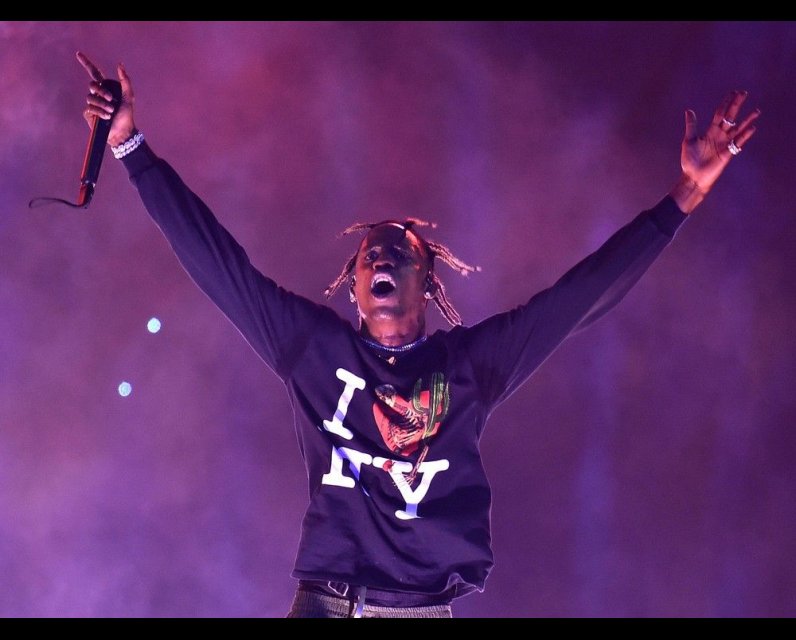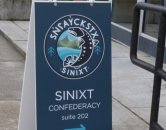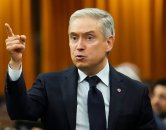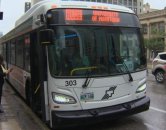How one off-duty CBSA agent derailed a Travis Scott concert in Montreal

OTTAWA — Tens of thousands of Osheaga attendees were hot, tired and annoyed when rap superstar Travis Scott finally sprung onto stage nearly one and a half hour late for the closing set of the 2018 festival.
“Sorry I’m late, I got held up at customs, you know how it is,” the rapper told the crowd, according to the Montreal Gazette . He played a truncated 40-minute set that began after the festival’s strict 11 p.m. curfew.
Scott’s tardiness to the rigorously punctual Montreal music gathering was a nightmare for festival organizers who had never dealt with a headliner showing up an hour and a half late and then bust curfew, a fineable offence in Montreal.
Droves of disappointed fans left the site before Scott jumped on stage. Within days, one festivalgoer had filed a class action lawsuit against festival organizer Evenko, which was subsequently tossed by a judge.
Both Scott and Osheaga blamed the world-famous rapper’s tardiness on delays at the Canadian border.
But a recent arbitration tribunal decision sheds light on the events that led to the chaotic night at Osheaga, including Scott landing at the Montreal airport just 45 minutes before his show and an off-duty Canadian border services officer (BSO) interfering in his colleagues’ work.
The tribunal decision confirms the firing of Canada Border Services Agency (CBSA) border agent André Rossin-Arthiat, who on the day of Scott’s show was freelancing off-duty as the bodyguard for an unidentified “billionaire” celebrity travelling with the rapper.
The ruling does not identify Travis Scott explicitly, but all evidence in the decision points to him being the “high-profile musician” linked to the infamously late show on Aug. 3, 2018.
The decision reveals that Scott landed at a private plane terminal at 9 p.m. for his 9:45 p.m. shot at the festival venue “some distance” from the airport. “It is clear to me that time was of the essence,” adjudicator Amélie Lavictoire wrote.
Unbeknownst to Scott and Rossin-Arthiat, CBSA had flagged the plane for additional screening because an unidentified passenger had previously tried to enter Canada with cannabis.
Once Scott’s plane landed, Rossin-Athiat — who carried his CBSA border officer badge with him despite being off-duty — waited five minutes after custom agents boarded the plane before entering it as well. No one other than on-duty CBSA agents are allowed to enter a plane while border officers conduct the immigration process.
On board, he told the on-duty agents that he was also a CBSA employee who worked at the airport, showed them his badge and told them he was “one of them”.
He then told the agents that the passengers were his friends and “they had already been deemed admissible into Canada.”
But none of that was true, Larivière wrote in her decision. None of the passengers were Rossin-Athiat’s friends, nor had any of them cleared customs at that point.
Samy Ait-Kadi, one of the border agents conducting the customs process for Scott, told the tribunal that the team was so put off by Rossin-Athiat’s comments that they asked him to leave the plane and triggered a deep search of the aircraft.
“At the hearing, Mr. Ait-Kadi identified (Rossin-Arthiat’s) interruption of the customs and immigration process as the primary factor that led him to make the decision to trigger an in-depth search of the aircraft, the passengers, and their luggage.”
The full search took roughly 90 minutes, after which all the passengers were allowed into Canada. During the search, Ait-Kadi discovered one of them was Scott after a colleague showed him social media posts lamenting that the musician was late for his show.
“That evening, and over the following days, media reports and social media posts expressed anger over the musician’s late arrival, the concert’s shortened duration, and the fact that the customs and immigration process had delayed the musician’s arrival.”
Five days later, CBSA suspended Rossin-Arthiat without pay and launched an investigation into his conduct while off-duty. The review revealed that he had held multiple other undisclosed jobs while working for CBSA.
In 2020, CBSA terminated him for both the events of Aug. 3, 2018, and for having failed to disclose his second job as a freelance bodyguard.
Rossin-Arthiat grieved his firing, admitting that what he did was wrong but arguing that the sanction was too severe and he should be reinstated.
Larivière disagreed, finding that he had repeatedly failed to respect CBSA’s code of conduct both on Aug. 3, 2018 and during previous incidents. She went so far as to say that he lacked judgment and integrity “from the moment he accepted the BSO job”.
“He attempted it to benefit his client and those accompanying her, to the detriment of the CBSA’s interest,” reads the decision. “The grievor showed a significant lack of judgment and integrity during the August 3, 2018, incident. His misconduct was serious.”
“(Rossin-Arthiat) has failed to learn from his past mistakes, disregarded (CBSA’s) repeated warnings, and failed to educate himself on the duties and obligations with which he was expected to comply,” the board added about his repeated violations of CBSA’s code of conduct.
In a statement, CBSA spokesperson Rebecca Purdy said the agency welcomes the labour tribunal’s decision.
“As a law enforcement agency entrusted with protecting Canada’s borders, abuse of authority will not be tolerated,” she wrote.
Rossin-Arthiat and Osheaga organizer Evenko did not respond to multiple requests for comment.
National Post
cnardi@postmedia.com
Our website is the place for the latest breaking news, exclusive scoops, longreads and provocative commentary. Please bookmark nationalpost.com and sign up for our daily newsletter, Posted, here.




Comments
Be the first to comment